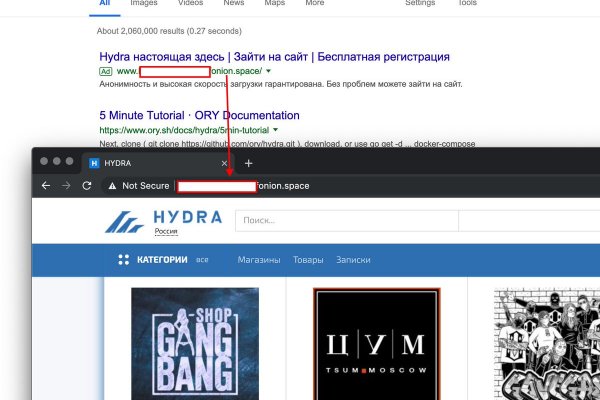Как вывести с кракена

Фейк "зеркало" Solaris Атака ОМГ-ботов Рекламные креативы с поиском информации о Solaris И это все приводит к вполне закономерному результату: Telegram начинает кидать в спам-блок аккаунты, которые отправляют прямую ссылку на RuTor в чатах и личных сообщениях. Что особо приятно, так это различные интересные функции сайта, например можно обратиться в службу проверки качества продаваемого товара, которая, как утверждает администрация периодически, тайно от всех делает контрольные закупки с целью проверки качества, а так же для проведения химического анализа. Но важно понимать, что форум - это просто плацдарм для будущего маркета. Хотя, на форуме позже был опубликован достаточно содержательный ответ на вопросы про пруфы. Самой надёжной связкой является использование VPN и Тор. Давайте рассмотрим события, произошедшие между этими двумя датами и имеющие отношение к освещаемому противостоянию. Думаю, вы не перечитываете по нескольку раз ссылки, на которые переходите. На эти заявления последовал ответ Люцифера и согласитесь: резонное замечание насчет того, что бы вернуть балансы пользователям тем, кто представляется hydra. Информация, которая используется в Тор браузере, сначала прогоняется через несколько серверов, проходит надёжную шифровку, что позволяет пользователям ОМГ наркотики ОМГ оставаться на сто процентов анонимными. Тем временем на форуме получает бан один из ключевых модераторов, что вызывает вопросы у пользователей, но они так же остаются без ответа. Для того чтобы войти на рынок ОМГ ОМГ есть несколько способов. И чутье его не подводит. События, которые развернутся дальше, можно смело назвать самой масштабной информационной войной в ру-даркнете за все его существование. Буквально через полчаса после этого взлом подтверждается Двуликим и админом Onion darknet Links. Это не сможет продолжаться долго. Найдено в даркнете Приветствую всех, господа. 2 июня - запланированная дата публичного открытия форума для всех желающих. Спустя какое то время форум все-таки поднимается и начинает работать. Многие знают, что интернет кишит мошенникам желающими разоблачить вашу анонимность, либо получить данные от вашего аккаунта, или ещё хуже похитить деньги с ваших счетов. И при этом пытается привлечь пользователей помочь в поиске доказательств (связи старого Way c новым), что служит поводом для определенных сомнений о качестве этого взлома. Это же событие совпадает с уходом помощника администратора RuTor username1234, который отправляется в отпуск и покидает проект. Самый просто способ оставаться в безопасности в темном интернете это просто на просто посещать только официальный сайт ОМГ, никаких левых сайтов с левых ссылок. Таким образом, тёмный мир интернета изолируется от светлого. Ну а, как правило, вслед за новыми зеркалами появляются всё новые мошенники. WayAway, хотя многие ждали, что откроется сразу Kraken (маркетплейс а не привычный старожилам даркнета форум. Однако, в день обещанной смерти форума в результате коллективной атаки (читай SolarisKraken техническая команда решает использовать ультимативную капчу от форума Dread и угадывает с решением, стабильность работы ресурса достигается за счет этого решения. Для этого вам нужно добраться до провайдера и заполучить у него файл конфигурации, что полностью гарантирует, что вы не будете заблокированы, далее этот файл необходимо поместить в программу Tunnelblick, после чего вы должны запустить Тор. На данный момент этот шлюз является следующим http omgomgo5nvnj2wf43kxjo3ssaf4mdgcv6mu3epfc7jxt2ues22uq3tad. Я опубликую часть скриншотов. Представитель также подтвердил достоверность переписок, слитых самим RuTor, однако уточнил, что слив произошёл с «предтествого сервера» и «к актуальным серверам не имеет отношения». Зашедшие на форум пользователи обнаруживают там прощание от Люцифера, правда его скоропостижно скрывает администрация от лишних глаз пользователей, дабы не допустить слив трафика. Основной валютой на рынке является bit coin. Хотя, нет уверенности в принадлежности hydra к новому. Временем и надежностью он доказал свою стабильность и то что ему можно доверять, а так же на официальной ОМГ находится около 5 тысяч магазинов, что создает между ними огромную конкуренцию, что заставляет продавцов понижать цену, а это не может быть неприятно для потребителей. Спрута, даже мертворожденного, никогда не существовало. Собственно сам слив переписок WayAway вы видели здесь, я лишь прикреплю парочку интересных скриншотов и прокомментирую. Каждый день на поддержку "бала" уходят миллионы рублей, и, возможно, это лишь оправдывается только тем, что приток пользователей на маркетплейс не прекращается. Июнь 2022: открытие WayAway и начало большой информационной войны конец мая - приватное открытие WayAway для представителей СМИ и других участников форума. Ответов я не получил, а результат аукциона до сих пор не известен. Удобство ОМГ! Здесь событие не било: не по Спруту не по BlackSprut'у. Для покупки этой основной валюты, прямо на сайте встроенные штатные обменные пункты, где вы можете обменять свои рубли на bit coin. Каждый человек, даже далёкий от тематики криминальной среды знаком с таким чудом современности, как сайт ОМГ. Форум был выкуплен маркетплейсом OMG. Можешь рассказать какие-нибудь случаи, связанные с получением медицинских сервисов? Подробнее.
Как вывести с кракена - 2kr kraken
Удобно, что цены на продукцию интернет-магазины выбирают сами, как и вариант сотрудничества с маркетплейсом. Начать сотрудничество с площадкой можно на странице / Натали Небольшой маркетплейс специализируется на брендированной продукции таких категорий игрушки, одежда, обувь, аксессуары и товары для дома. Важно, чтобы продукция отличалась от китайской. Схема работы сервиса отличается от большинства маркетплейсов. Транспортировка товаров на склад маркетплейса осуществляется за счет продавца. В поисках этих товаров чаще посещают площадку, хотя достаточно неплохо продаются там и другие категории автотовары, детские игрушки, бытовая техника, книги.д. 24-bit Hi-Res (2023) flac 600.68 MB 8 2 05 Мар 23 Kimi Djabaté - Dindin 24-bit Hi-Res (2023) flac 472.28 MB 3 4 05 Мар 23 Katrina Krimsky - 1980 (Solo Piano, Live at Creative Music Studio, Woodstock, NY) 24-bit Hi-Res (2023) flac. Мы расширяемся и планируем расти дальше. Сетей и тому подобное. UFC 285: Джон Джонс - Сирил Ган. В даркнетесосредоточены сайты предоставляющие незаконные услуги. . Условия работы на площадке для интернет-магазинов описаны на странице /. Плюсы площадки для продавцов: большая дневная аудитория порядка 7 миллионов человек; прямые продажи на площадке и возможность хранения товаров на ее складах илвара. Ваш сайт: Отправить на оценку Подробнее об услуге Комиссия маркетплейса составляет от 35. Выплаты за доставленные заказы партнёрам маркетплейса могут осуществляться по одному из графиков: ежедневные выплаты; 1 раз в неделю; 2 раза в месяц. Подробная информация для продавцов, желающих сотрудничать с площадкой, указана на странице rket/. Стартовать на площадке можно как частному лицу, а со временем открыть платный бизнес-аккаунт с расширенными возможностями и дополнительными услугами. «Пульс Цен» Платформа предлагает быструю регистрацию продавцам и поставщикам, а также выгодные условия сотрудничества: продажа товаров любых категорий и объемов; хранение прасов. Населенных пунктов в РФ, Украине, Казахстане. Omg shop - магазин моментальных покупокОМГ онион (omg onion) - это самая популярная площадка запрещенных товаров в "черной" сети (Draknet). О сотрудничестве с маркетплейсом можно узнать в соответствующем разделе и на странице /info/manufacturer/. Одной из особенностей является то, что переводу для гидры не требует подтверждения blockchain. В последние годы развиваются и другие направления. Подробнее о площадке можно узнать здесь. Team - Нет никаких нас (2023) MP3.49 MB 15 3 05 Мар 23 Мать-и-мачеха 01-12 из 12 (2012) WEB-DL 1080p.16 GB Мар 23 Temptress - See (2023) MP3 101.84 MB 18 1 05 Мар 23 VA - Ibiza A3). OrgСайты сети TOR, поиск в darknet, сайты Tor.- Продажа сайтов и обменников в TOR Изготовление и продажасайтов и обменников в сети TOR. Списокссылок. Ассортимент Zalando одежда, обувь и аксессуары для женщин, мужчин и детей. Три истории (2023) PDF 102.09 MB 11 3 05 Мар 23 Жюстина маркиза Де Сада / Marquis de Sade: Justine (1969) BDRip 720p от ExKinoRay.41 GB Мар 23 PowerWash Simulator v Build DLCs (2022) PCтец. Начать продажу на сайте непросто, так как к заявителям предъявляются строгие требования. Все особенности площадки и специфику продаж мы указали в статье «Как продавать на Озон». Omg ещё предлагает своим клиента различные запрещенные услуги, по типу: подделка документов, взлом почты, соц. Оружейная ярмарка в Персидском заливе (2023) hdtv 1080p от ILoveTorrents.51 GB Мар 23 Мандалорец / The Mandalorian 03x01 из 08 (2023) WEB-DLRip 1080p D Локализованная версия Flarrow Films.73 GB Мар 23 VA - Sunset Emotions, Vol. Партнеры получают такие возможности: сайт на платформе и мобильное приложение; интеграция с Юkassа, сдэк, Робокасса; аналитика и статистика продаж, учет конверсии; автозагрузка товаров и массовое изменение цен; инструменты маркетинга и продвижение сайта; тарифы стоимостью от 45 тысяч в год с бесплатным недельным периодом. Смартфонов. Террористы, скинхеды и оппозиционеры радикальныхвзглядов тоже создают сайты в onion-сети, публикуют там статьи иобсуждают. . А теперь лайвхак, как найти цп вовконтактике Onion сайты Всё о Tor - параллельном интернетеСайты находящиеся в нем имеют шифрованные имена с доменом. Включает все функции тарифа «Стандарт» и дополнительно продвигает ваши товары. Есть гарант продаж, в виде того, что продавец не получить оплаченные вами средства, пока вы лично не подтвердите "наход" закладки. Гром из трущоб (2023) MP3 262.60 MB 11 0 05 Мар 23 VA - Time to Chill, Vol.

На сайте можно посмотреть график выхода серий сериалов и аниме, добавить любимые сериалы и аниме в расписание и отслеживать даты выхода новых. Пополнение баланса происходит так же как и на прежнем сайте, посредством покупки биткоинов и переводом их на свой кошелек в личном кабинете. Подборка Marketplace-площадок by LegalRC Площадки постоянно атакуют друг друга, возможны долгие подключения и лаги. Возвращаемся к вам со сводкой новостей от команды разработчиков. 2019 объявлено о строительстве первого ТЦ в Москве в пределах мкад. Ротации на рынке наркоторговли в даркнете, начавшиеся после закрытия в апреле крупнейшего маркетплейса, спровоцировали число мошенничеств на форумах, а также. 5 Примечания. Уводят аккаунт при обмене. Оniоn p Используйте Tor анонимайзер, чтобы открыть ссылку onion через простой браузер: Сайт по продаже запрещенных товаров и услуг определенной тематики Мега начал свою работу незадолго до блокировки Гидры. Всё что нужно: деньги, любые документы или услуги по взлому аккаунтов вы можете приобрести, не выходя из вашего дома. 59 объявлений о тягачей по низким ценам во всех регионах. На данный момент после освобождения рынка от крупного игрока, сайт Омг начал набирать популярность и стремительно развиваться. Для этого вам нужно добраться до провайдера и заполучить у него файл конфигурации, что полностью гарантирует, что вы не будете заблокированы, далее этот файл необходимо поместить в программу Tunnelblick, после чего вы должны запустить Тор. Ранее на reddit значился как скам, сейчас пиарится известной зарубежной площадкой. Богатый функционал Самописный движок сайта (нет уязвимостей) Система автогаранта Обработка заказа за секунды Безлимитный объем заказа в режиме предзаказа. Покупателю остаются только выбрать "купить" и подтвердить покупку. Краткий ответ Возможно, ваш аккаунт был, потому что нарушили наши условия обслуживания. ОМГ вход В наше время, в двадцать первом веку, уже практически все люди планеты Земля освоили такую прелесть, как интернет. Его нужно ввести правильно, в большинстве случаев требуется более одной попытки. Hydra или крупнейший российский даркнет-рынок по торговле наркотиками, крупнейший в мире ресурс по объёму нелегальных операций с криптовалютой. Сайт, дайте пожалуйста официальную ссылку на или onion чтобы зайти. Мега сеть российских семейных торговых центров, управляемая. Купить препарат от 402 руб в интернет-аптеке «Горздрав». Отзывы клиентов сайта OMG! Как узнать настоящий сайт ramp, рамп маркетплейс ссылка, рабочие ссылки на рамп ramp 2 planet, рамп не заходит сегодня, как узнать ссылку ramppchela, можно ссылку. Ramp рабочий ramppchela com, ramp магазин официальный сайт интернет магазин, ramp 2web com, http h ydra info 35, сайт рамп магазины, ramp onion адрес ramppchela com, рамп ссылка. Капча Судя по отзывам пользователей, капча на Омг очень неудобная, но эта опция является необходимой с точки зрения безопасности. это программа для доступа к облачному хранилищу с автоматической. Пожалуйста, подождите. Russian Anonymous Marketplace один из крупнейших русскоязычных теневых форумов и торговая площадка. Маркетплейс СберМегаМаркет каталог товаров интернет-магазинов. Покупки с использованием биткоина без задержки транзакций, блокировки кошельков и других проблем Опция двухфакторной аутентификации PGP Ключи Купоны и система скидок Наличие зеркал Добавление любимых товаров в Избранное Поиск с использованием фильтров. Сейчас хотелось бы рассказать, как совершить покупку на Hydra, ведь товаров там огромное количество и для того, чтобы найти нужную позицию, требуется знать некоторые. Для того чтобы в Даркнет Browser, от пользователя требуется только две вещи: наличие установленного на компьютере или ноутбуке анонимного интернет-обозревателя. Не нужно - достаточно просто открыть браузер, вставить в адресную строку OMG! Попробовал. Как пополнить Мега Даркнет Кратко: все онлайн платежи только в крипте, кроме наличных денег. Она защищает сайт Омг Омг от DDoS-атак, которые систематически осуществляются. В ближайшей аптеке, сравнить.